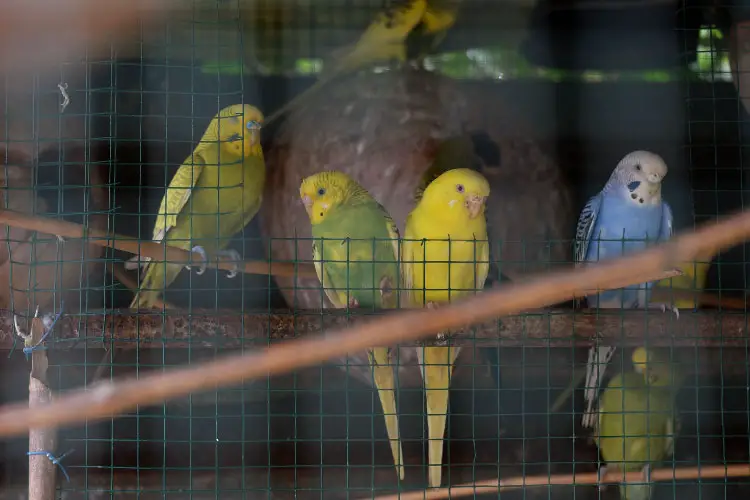Good quality sleep is essential for your budgies’ health, and you’d want to try as much as possible to ensure you provide them with a peaceful and comfortable sleeping space. So, is TV a bad thing for budgies’ sleep?
Can budgies sleep with the TV on? TV is not recommended when the budgies are sleeping. Budgies generally require a quiet and dark sleeping environment, so the noise and light from the TV can easily disrupt their sleep.
In this article, we share more details about whether you should have your TV on when your budgie is sleeping and other important information related to budgies’ sleep.
Can budgies sleep with the TV on?
It’s not recommended to leave the TV on when your budgies are sleeping. As we’ve just said above, budgies’ ideal sleeping space should be quiet and dark to enable them to sleep peacefully and comfortably.
Take for instance, when you’re watching a TV series or movie. These usually keep changing the brightness, sound level, and even movements—all of which work against providing your budgie with a peaceful sleeping space.
The blue light from your TV is particularly a culprit for disrupting the bird’s sleep.
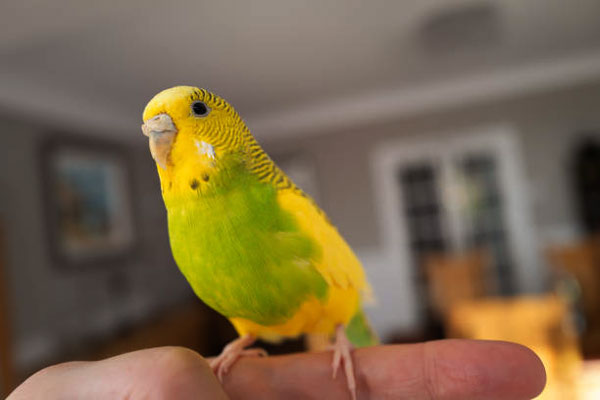
It can trick your budgie into thinking it’s daytime. This can easily ruin the budgie’s healthy sleep cycle and even make it sleep-deprived. And lack of sleep has potential risks to its overall health and well-being.
If you have your TV on up to late at night when the budgies are supposed to be in deep sleep, you can significantly disrupt their sleep.
About 10 to 12 hours of undisrupted sleep is essential for your budgies’ healthy immune system. Sleep-deprived budgies can get depressed, sleep all day, and become vulnerable to various illnesses.
However, if you must watch TV at night, then you should follow these tips to avoid disturbing your budgie:
- Reduce the TV brightness and keep the volume as low as possible to ensure you don’t interfere with your little guys’ sleep. However, we don’t guarantee that this will be 100% non-disruptive for your budgies.
- Move your budgies portable cage to an ideal sleeping environment hast quiet and peaceful.
- Keep your TV far from your budgie’s cage, regardless of how dimly lit or low volume you’ve set it to.
- Turn off the lights in your room to help create a dark environment
- Cover your budgie’s cage with a sheet when it’s sleeping at night to help keep out as much light and noise as possible.
- Watch something with calming and level soundtracks as well as dialogue. This is less likely to startle your budgie from its sleep.
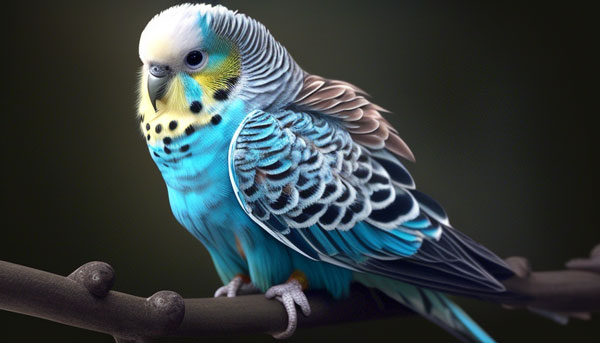
Note that it’s perfectly okay to watch TV with your budgies during the day when they’re awake.
It’s one of the fun things you can do with your budgie and it can keep them entertained as well. Just avoid late-night TV watching with your budgies.
What type of TV programming is suitable for budgies to sleep with?
Repetitive noises such as rain sounds or classical music are safe for budgies at night and can actually help them get some quality sleep.
Or you can simply consider white noise on your TV which is known to positively impact sleep in animals as well as humans.
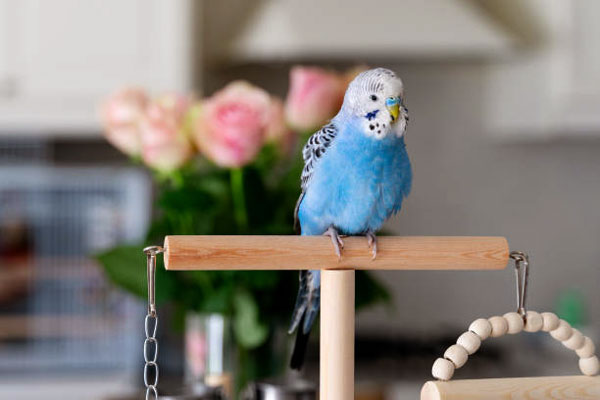
But you should make sure you keep the volume at a comfortable level.
In addition, you need to dim the TV light.
Take advantage of the modern TV settings to help you reduce the light, filter out blue light, and settings for adjusting loud sounds and leveling the volume.
Do birds need complete darkness to sleep?
Budgies’ ideal sleeping space should be completely dark to enable them to fall asleep easily.
As such, it’s upon you to ensure you provide your budgie with such a sleeping environment by turning off your TV and removing other light sources in the room overnight.
Modern LED TVs in particular tend to produce too much brightness that it affects proper melanin formation in your budgie, making it difficult for the bird to fall asleep.
Though your budgie may still try to sleep with lights on, it will be continually disrupted.
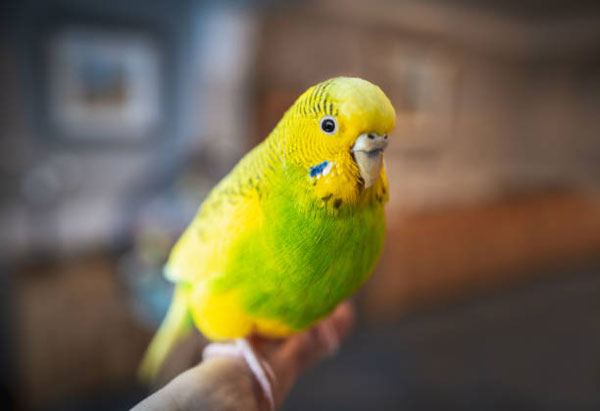
In this case, it won’t be able to reach the same deep level of sleep as it would if it slept in a completely dark and distraction-free room.
Mind you, budgies’ counterparts in the wild usually use the gradual fading of sunlight to prepare them for sleep.
So you can try to create a natural cycle for your pet budgie by gradually putting off the lights in its room from around 6pm.
Do budgies need silence to sleep?
Absolutely. Budgies also require a quiet space for them to fall asleep easily. This is why we recommend against having a TV on at night when your budgie is sleeping.
You should try to keep your TV volume as low as possible. Also, keeping the TV a few feet away from your budgie’s cage can help prevent sleep disruption.
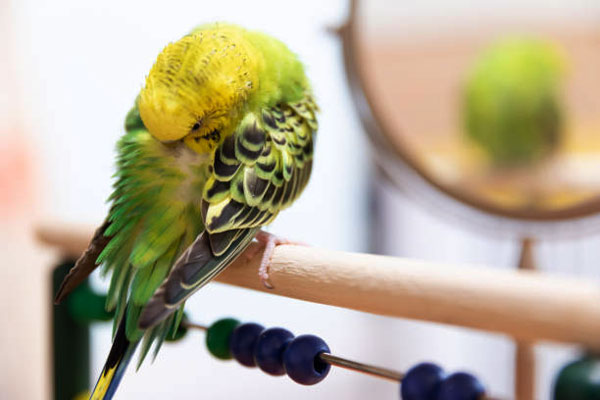
You should also be mindful of what you watch as it can affect the noise level in your home.
While budgies can cope with noise in the living room during the day, they’ll require a silent space at night for them to enjoy deep sleep.
How to ensure your budgie has a peaceful environment to sleep in?
As we mentioned earlier, lack of sleep in budgies has many potential risks, including a weakened immune system that makes your budgie vulnerable to diseases. Your budgies can also get easily depressed and become crankier and more aggressive than before.
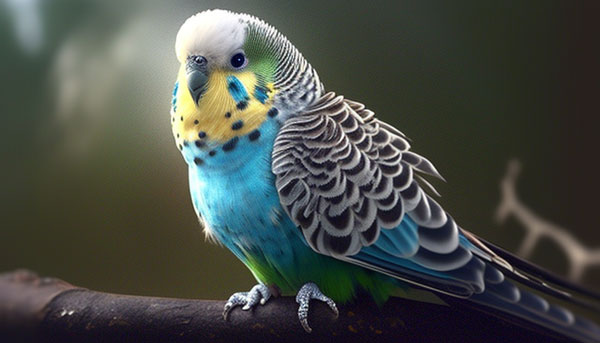
However, you can help ensure your budgie has a peaceful environment for sleeping by reducing noise that can draw it out of its sleep, e.g. TV noise, turning off the lights, or using a sheet to cover its cage and block out light sources.
Additionally, come up with a sleep schedule for your budgies, maintain comfortable sleeping temperatures (between 70 and 75 degrees F), and provide it with enough perches for sleeping on.
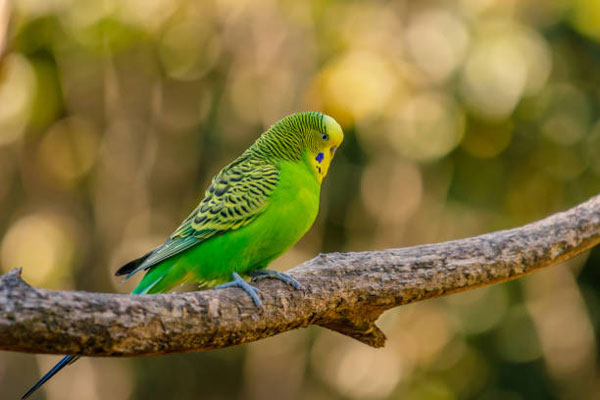
Final Verdict
Late-night TV watching when your budgies are sleeping isn’t recommended. The noise and light the TV produces end up disrupting your pet bird’s sleep. Poor quality sleep can have negative effects on the parrot’s health. If you must watch your TV at night, then be sure to dim the light and keep the volume low. Follow the additional tips we’ve provided in this guide on how to provide a peaceful environment for your budgies to sleep in for their own well-being and overall good health.
